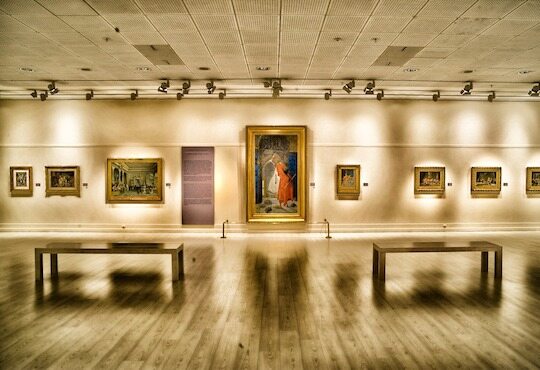
UNESCO warns that COVID-19 has a greater than anticipated impact on the culture sector.
According to data gathered by the Organization and included in a new policy guide, UNESCO has evaluated the steps taken by governments to address the impact of the COVID-19 crisis on culture professionals and the sector as a whole. This impact appears to be more severe than previously believed.
It is projected that the film industry would lose ten million jobs by 2020 (1), and that the crisis has caused a half-staff reduction in one-third of art galleries (2). A six-month shutdown might cost the music business over $10 billion in lost sponsorships (3), and the pandemic’s aftermath is predicted to cause a 7.5% decline in the global publishing market (4).
UNESCO has created tools for decision-makers in response to the crisis, which has resulted in the closure of numerous theaters, movie theaters, and bookshops as well as the denial of professional opportunities for artists. The police guide, Culture in Crisis: A Policy Guide for a Resilient Creative Sector, was released by UNESCO. In addition to providing guidance on how to improve the creative industries’ future resilience, the paper serves as a useful manual for governments to handle the difficulties that artists and other cultural workers are encountering during the pandemic.
UNESCO has released a guide addressing the impact of COVID-19 on the cultural sector, highlighting the challenges faced by artists and women in the arts and culture sectors.
The guide outlines 15 key measures taken by governments worldwide, including direct support to artists and cultural professionals, indirect support to cultural and creative industries, and strengthening the competitiveness of these industries.
Countries like Uruguay, Zimbabwe, the Philippines, Germany, and the United Arab Emirates have established funds to support artists, provided financial assistance to cultural workers affected by quarantine restrictions, and commissioned and purchased works of art to generate income for artists.
The guide emphasizes the need to support culture financially and politically, as well as give it a place at the political negotiating table. The pandemic has accelerated the shift to online concerts and festivals, but 46% of the world’s population lacks internet access, limiting access to arts and during confinement. UNESCO launched a global monitoring exercise to assess the impact of COVID-19 on the cultural sector and facilitated a global conversation between professionals and artists, with over 220 ResiliArt debates in over 75 countries.
